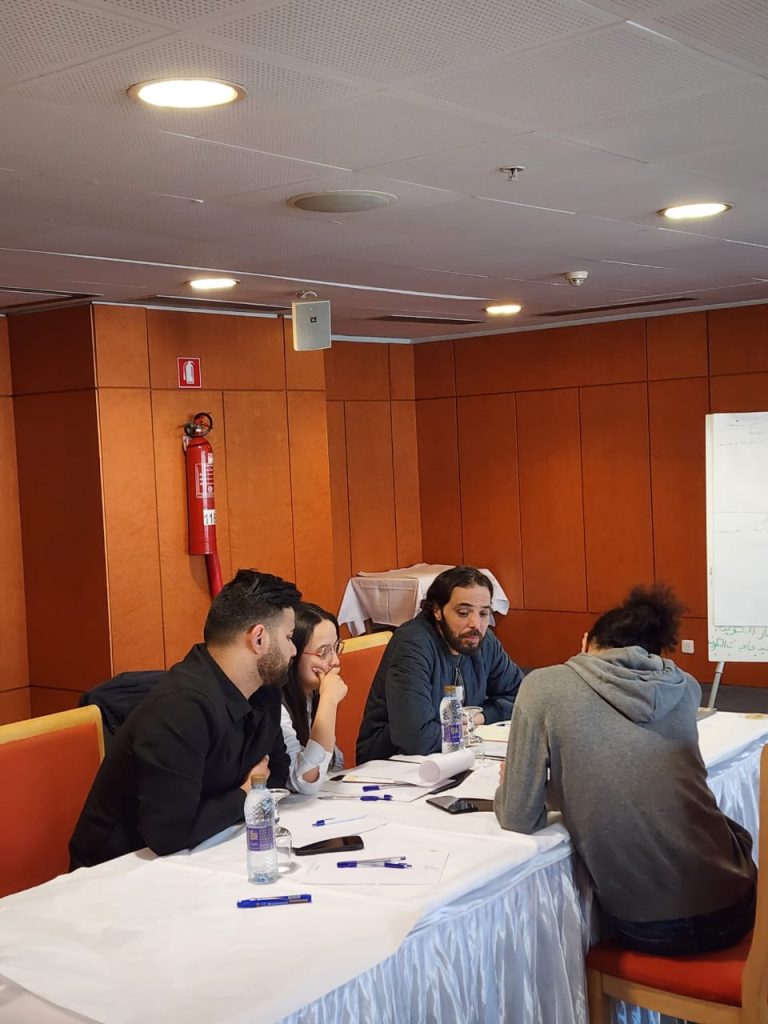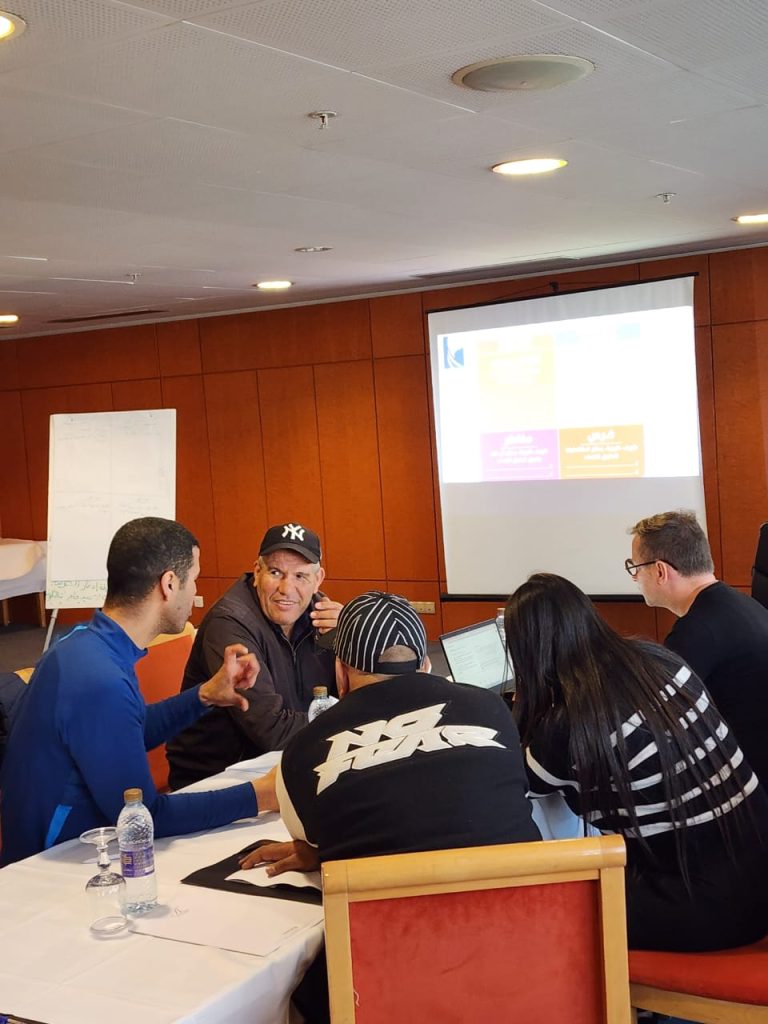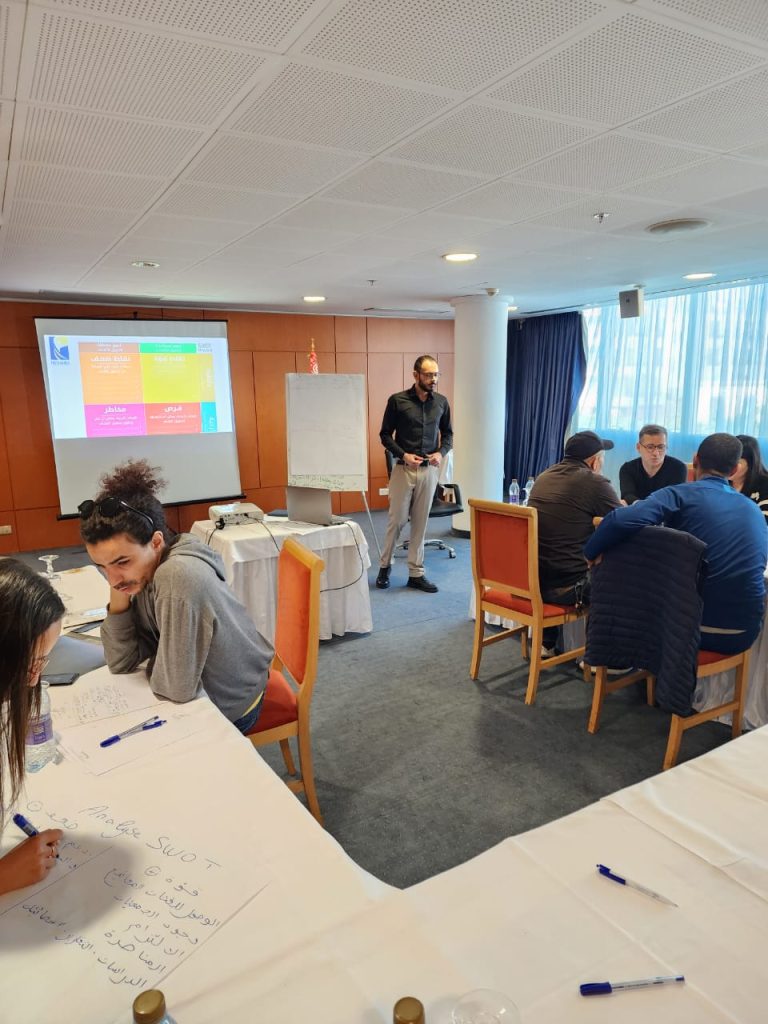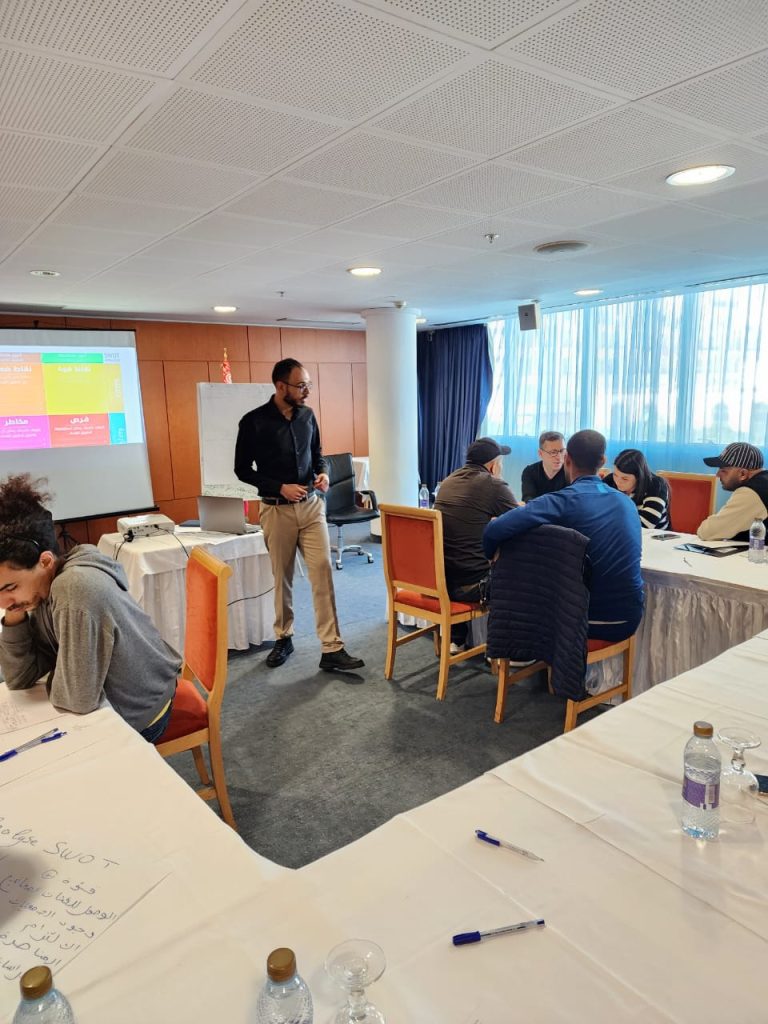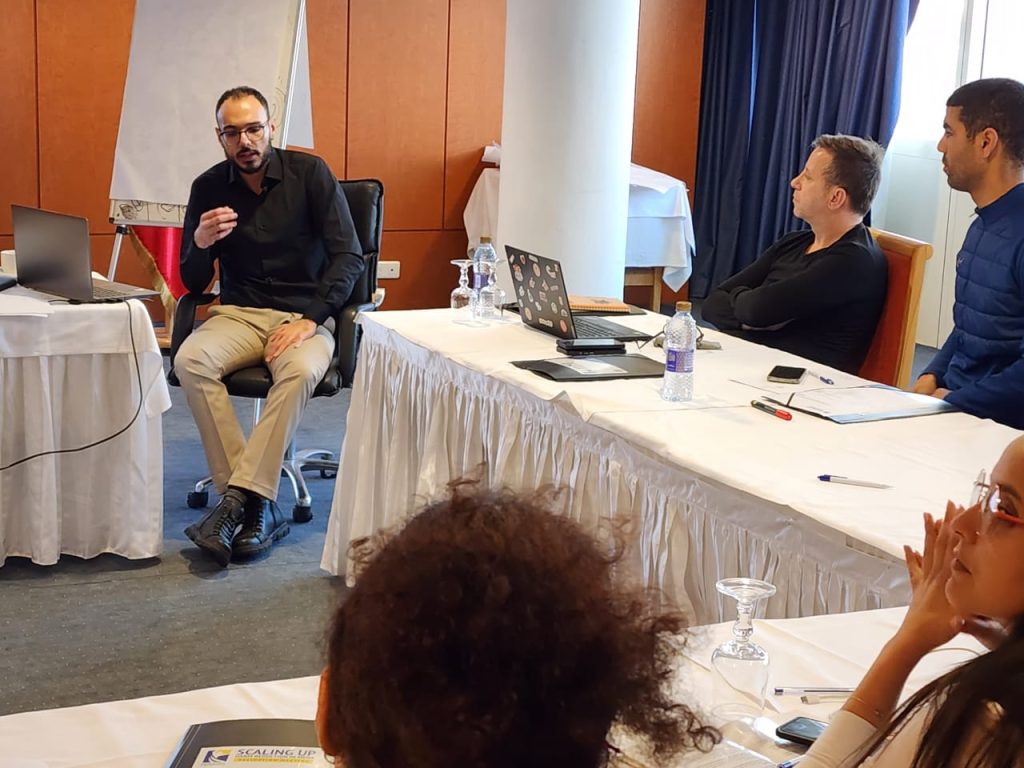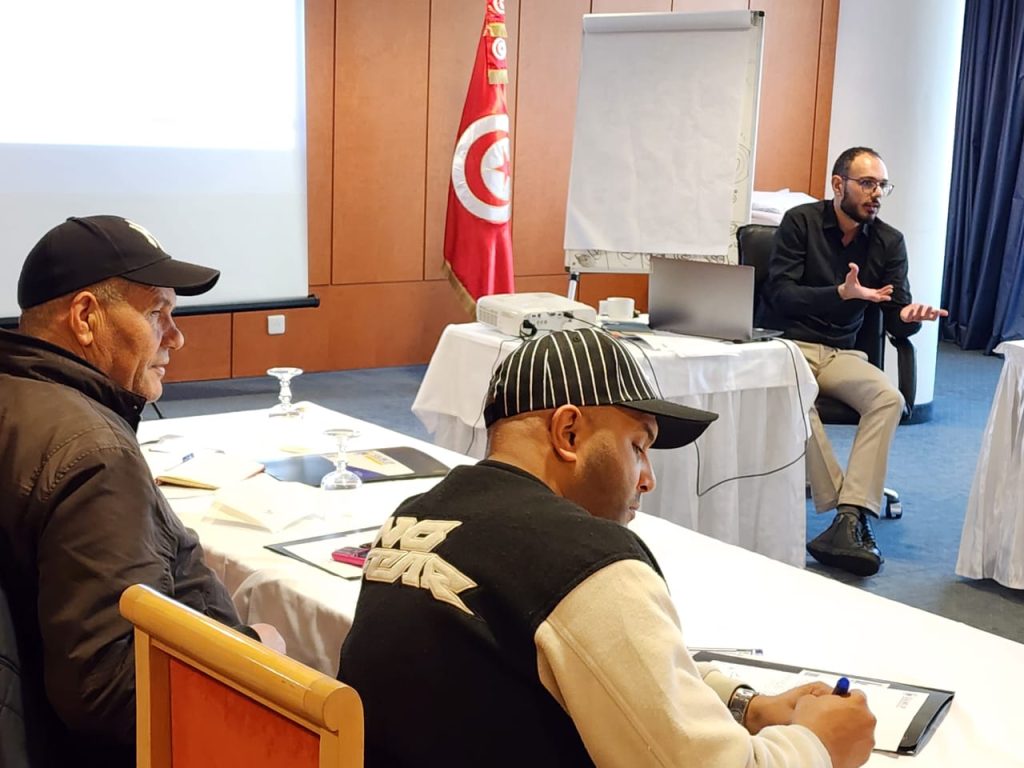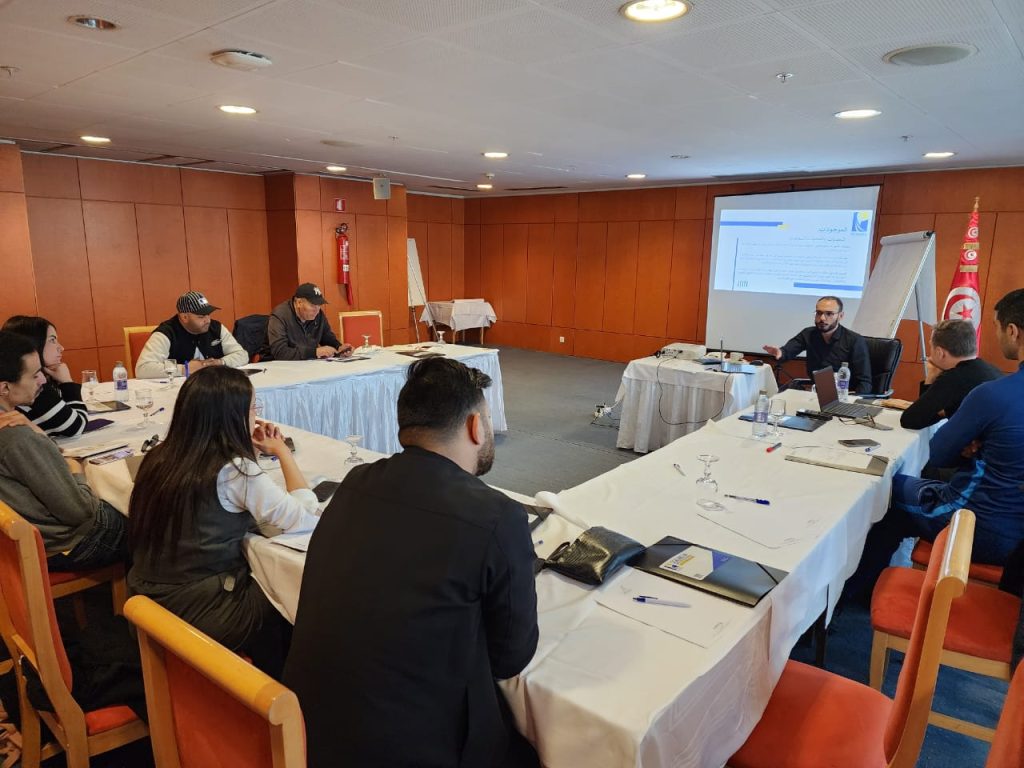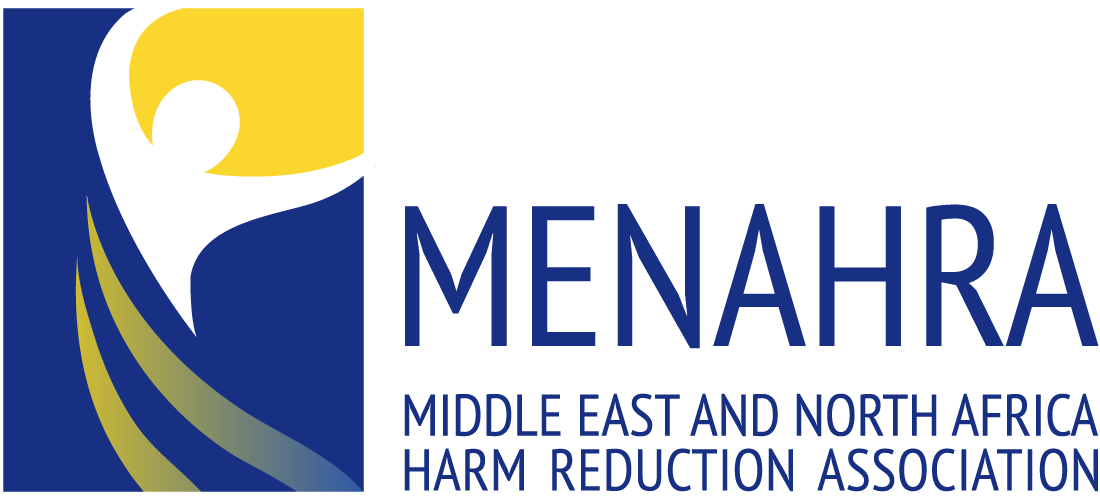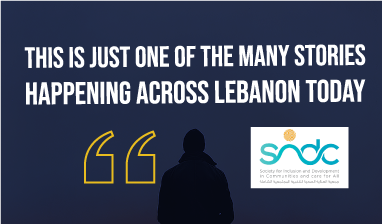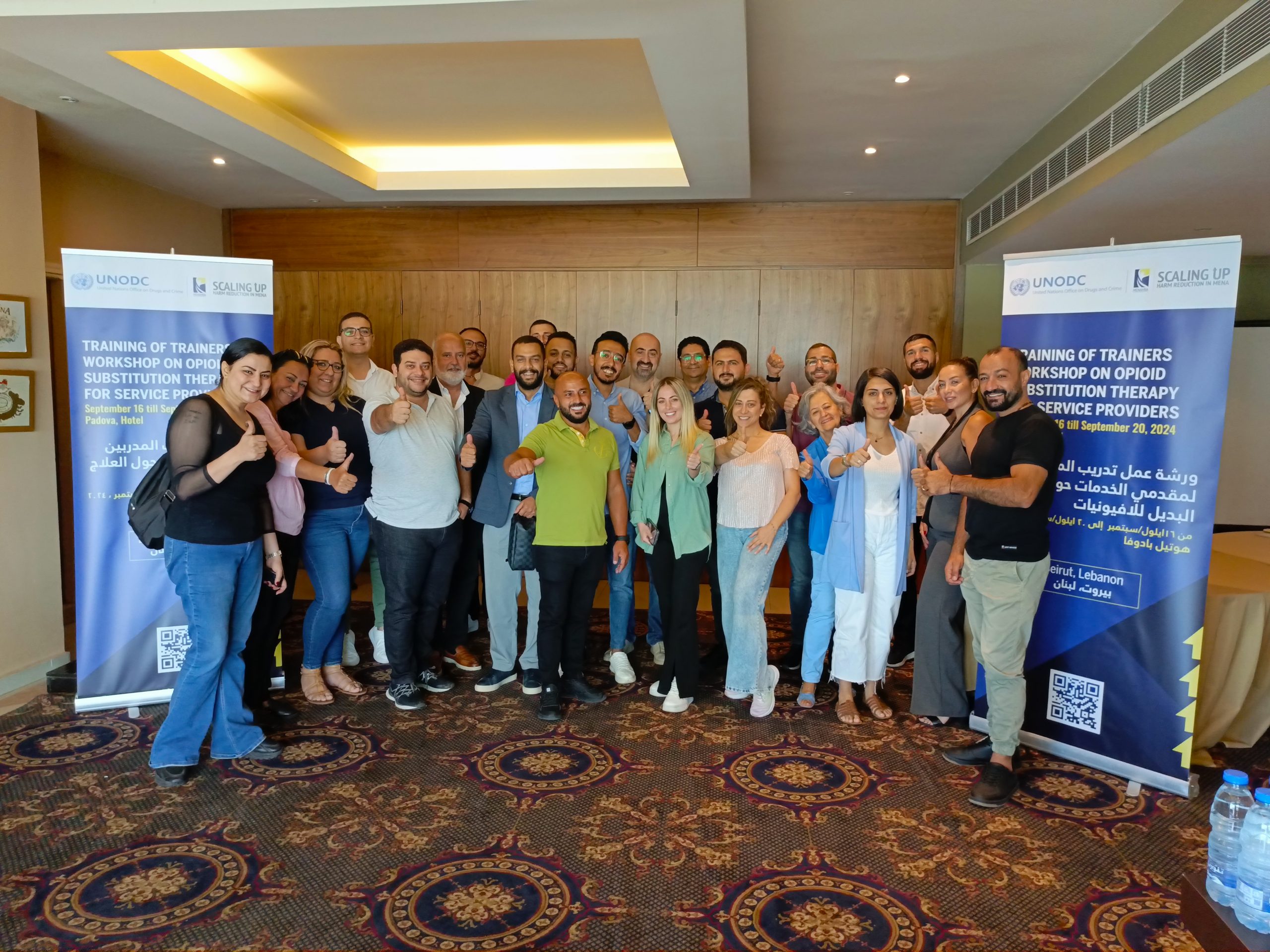Recently conducted validation meetings held in Lebanon, Jordan, Morocco, and Tunisia brought together a diverse group of participants, including civil society organizations (CSOs), community members, experts, and stakeholders. These meetings provided a valuable platform for exchanging knowledge and expertise, shedding light on the intersecting needs of People Who Use Drugs (PWUDs) within the LGBTQI+ community. Each meeting, held on December 7th in Lebanon, December 14th in Jordan, March 7th in Morocco, and March 14th in Tunisia, aimed to deliberate on effective interventions and strategies to address these complex needs.
Lebanon’s meeting witnessed a variety of recommendations proposed by local CSOs. Suggestions spanned the inclusion of guidance on the Role of Syndicates and UN Agencies in forthcoming toolkits in regard to SRHR. Moreover, a collaborative approach was underscored, advocating for the establishment of a task force to unify interventions of associations working with community members. Participants emphasized the need to abide with evidence-based strategies, the call for expansive research, to inform interventions. Additionally, it was highlighted that strengthening the capacity of service providers and ensuring professional case management emerged as fundamental components.
In Jordan, the meeting spotlighted a spectrum of recommendations to address multifaceted challenges. This included a focus on sensitization and inclusivity within service provision, aimed at fostering more welcoming environments. Reworking prevailing narratives and heightening public awareness emerged as a critical step to be taken in Jordan. Efforts toward community building within the LGBTQI+ collective were highlighted, and the importance of safe spaces was emphasized. The meeting focused on the need to engage with governmental bodies to institute comprehensive public service provision, integrating harm reduction, sexual and reproductive health and rights (SRHR), psychosocial support, targeted awareness, and gender-based violence (GBV) interventions.
In Morocco, participants revealed both strengths and weaknesses inherent within current initiatives. Noteworthy strengths included a robust civil society framework and growing legal awareness, while challenges such as limited funding access and legal constraints were identified as areas requiring urgent attention. Amidst the discussions, a comprehensive set of recommendations and priorities emerged, underscoring the need for inclusive youth initiatives, stakeholder engagement platforms, and collaborative efforts to reform discriminatory laws. Of particular significance was the call to integrate Civil Society Organizations (CSOs) into national harm reduction strategies, emphasizing Morocco’s unique position in the region. Furthermore, the meeting emphasized the importance of capacity-building initiatives, decentralized service provision, and proactive responses to emerging trends in harm reduction. Participants highlighted the necessity for continued collaboration across workstreams from neighboring countries and sought MENAHRA’s support in establishing a research and documentation observatory.
In Tunisia, the consultative meeting convened on March 14th to address the pressing needs of People Who Use Drugs (PWUDs) within the LGBTQI+ community underscored a pivotal moment for collaborative action. Delving into a SWOT exercise, participants illuminated key strengths such as fluid communication among NGOs and the invaluable sharing of experiences within the CSO network. However, glaring weaknesses in service accessibility were brought to light, alongside the scarcity of pertinent data hindering informed decision-making. In the aftermath, recommendations cascaded forth, advocating for enhanced funding, decentralized service provision, and targeted sensitization efforts. The imperative of mainstreaming harm reduction strategies, bolstering peer-to-peer interventions, and amplifying advocacy for marginalized communities resonated as actionable steps towards a more inclusive and equitable future.
The outcomes of these meetings signify a collective commitment to addressing the intersecting needs of PWUDs within the LGBTQI+ community. They represent a significant stride in developing a detailed implementation plan grounded in credible datasets and first-hand insights from key stakeholders and community members. The emphasis on evidence-based interventions, inclusivity within interventions, sensitivity training for service providers, and strategic partnerships points toward a promising trajectory for effecting tangible change in the region.
This synthesis of recommendations forms the foundation for tailored interventions, reflecting a comprehensive understanding of the challenges faced by these intersecting communities. Through collaborative efforts and an unwavering commitment to inclusivity, these initiatives are poised to address the needs of community members within the region.
